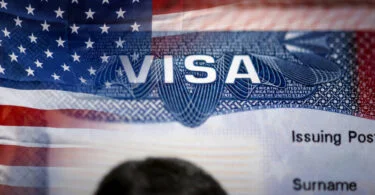France is currently grappling with a pressing workforce crisis. According to recent research by the French Think tank Terra Nova, the nation will need between 250,000 and 310,000 international employees annually by 2040 to sustain its economy. This urgent need is driven by a growing population and a decline in local workforce participation.
The report also points out that France accepted about 331,000 immigrants in 2022, which is anticipated to stay steady or expand to satisfy growing labor market requests.
Table of Contents
Reasons France Depends More On International Labour
Immigration for labor is not just a policy decision; it’s a necessity. Employers in the healthcare, construction, agriculture, and cleaning industries are struggling to find enough local workers, making international employees a crucial part of these sectors.
Below is how international employees are completing the openings:
1. Healthcare Industry
In the Ile-de-France province, which is related to Paris, 61 percent of health employees are international citizens. About 20 percent of physicians in public institutions are trained abroad, indicating the industry’s massive dependence on foreign experts.
2. Construction And Agriculture
The two industries are facing steady shortages, mostly of manual labor and seasonal jobs, which is forcing the authority to rely on immigrant labor to keep operations functioning.
3. Cleaning Services
This sector remains an important but underappreciated field, where international employees play a crucial role in keeping municipalities and public spaces operational.
4. Medical Experts
Nearly 20 percent of physicians practicing in French institutions are international graduates, emphasizing the dependence on foreign professionalism in this crucial area.
These figures clearly indicate that France offers significant opportunities for international workers seeking jobs in these high-demand industries, right now.
In-Demand Works For International Employees
France experiences severe labor shortages in major industries such as healthcare, construction, agriculture, and cleaning. These sectors depend hugely on international employees to maintain essential services and economic stability.
- Healthcare (nurses and general practitioners)
- Construction (plumbers, laborers, and electricians)
- Agriculture (harvesters and pickers)
- Cleaning services (Janitorial worker, housekeepers
- Teh and Informational Technology (engineers, dveelopers)
Top Work Visa Route For International Employees
If you are a skilled employee seeking to relocate to France, many work visa courses can assist you in going into the employment market lawfully and efficiently. While certain conditions can differ, below are some of the significant work visa choices to investigate:
1. Talent Passport (Passeport Talent)
This multi-year renewable residence permit is intended to attract highly eligible international experts and persons with specific skills and masteries that can benefit the French economy.
If you enjoy this article, don't miss out on the valuable insights and information available in our other related posts:
- VFS Global To Introduce Biometric Hubs For Australian Visas In Europe And Africa
- Reasons The United States Revokes F-1 Visas Of Hundreds Of International Students
- UK Experiences Labour Shortage, Presents New Visa Programs To Attract Foreign Skill
- Australia Working Holiday Maker Visa 2025 Open For Application
- 15 Highest Paying Jobs In Marketing And Advertising In Canada
This visa is formed for highly experienced experts, which include:
- Workers on intra-firm transfers
- Engineers
- Entrepreneurs
- Researchers
- Artists
Validity: 4 years and renewable
Note: Partners and children can also get residence permits.
2. Worker Visa (Salarie)
This is a standard work visa for persons who have acquired a job contract with a French employer. The employer automatically required to indicate that a French or EU national could not complete the role.
Qualification: Employment contract from a French firm.
Industry priority: Cleaning, construction, hospitality, and healthcare.
3. Seasonal Worker Visa
The seasonal worker visa enables international citizens to work in agriculture, hospitality, or tourism in France for six months annually on a renewable basis. Significantly, this visa permits work only during certain seasons.
Period: Up to six months annually
Ideal for: Vineyard, farm work and rural tourism
4. Intra-Firm Transfer Visa
The Intra-Company Transfer visa is best for workers transferred within multinational firms. It allows skilled experts to be employed in a French branch for 12 to 36 months.
Qualification: At least 3 months of job in the same firm overseas.
Validity: 12 to 36 months, based on the contract.
5. EU Blue Card
The EU Blue card is for highly skilled non-EU experts with an employment offer in France, a competitive income, and identified certifications.
Qualification: University degree or equivalent and job contract with a minimum of 1.5 times the French average gross yearly income.
Validity: Renewable 12 months to 4 years; permits mobility within EU Blue Card member nations.
6. Specific Industry Visas
Certain visa schemes tailored to specific industries, like healthcare experts, might exist based on your occupation. For instance, there are specific visa options for healthcare professionals, such as the ‘Healthcare Professional Visa’, which is worth studying if you are in this field. It is worth studying alternatives that are particular to your area.
France is at a demographic crossroads. With a growing population and increasing employment openings, the demand for international employees is no longer a future concern but a present reality.
Whether you are a skilled expert, a healthcare employee, or seeking seasonal prospects, France’s labor market is highly available to foreign skills.
Hence, as political debates concerning immigration have heightened, now might be the ideal time to get a work visa before guidelines are toughened.





